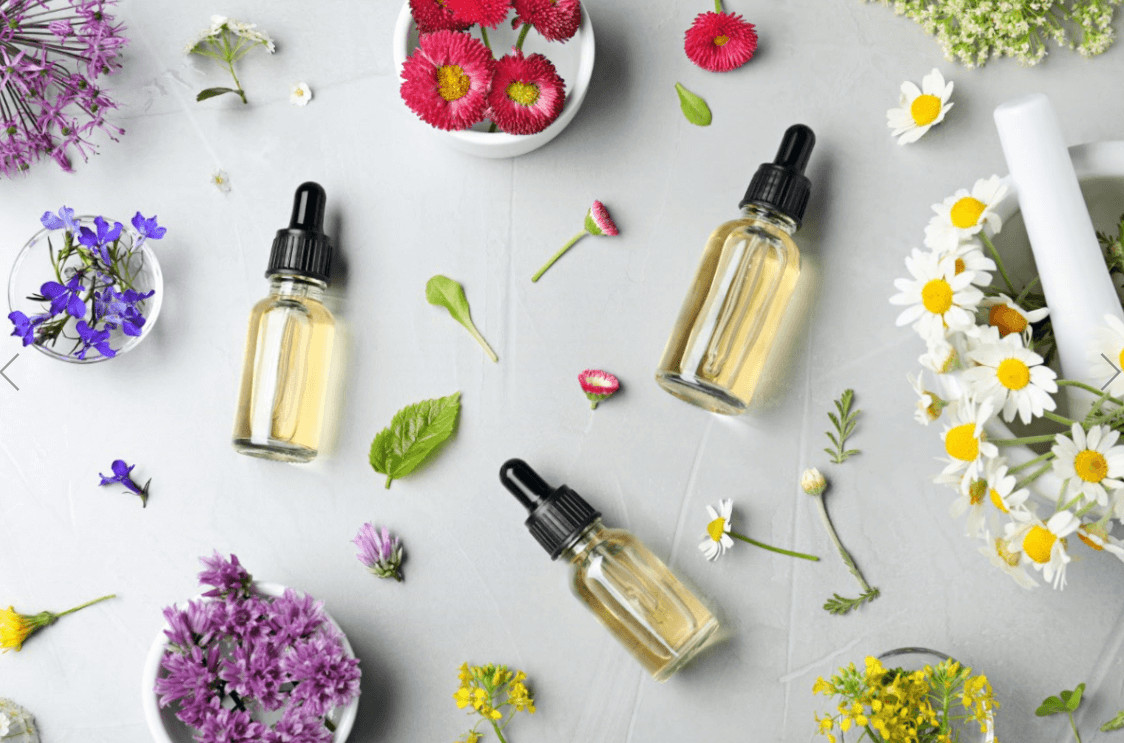Jojoba Oil For Skin: Benefits & More!

The latest and greatest trend is beautiful skin. It’s not about how much makeup you put on to have the appearance of flawless skin, it’s about actually having flawless skin. Barely needing to apply any makeup to your face when you leave the house is what everyone is trying to achieve. It’s not easy. The amount of damage we’ve caused to our precious skin is immeasurable. Trying to reverse the damage is hard, but not impossible. With natural oils like jojoba oil, we can have beautiful, glowing skin soon enough.
Jojoba oil isn’t only rich in its benefits, it’s also rich in history. Jojoba oil has been used for its benefits since the Native Americans used it to treat wounds and sores. They extracted it from jojoba seeds. It was also used during WWII as additions to gear oil, transmission oil, and motor oil. However, the processing of jojoba oil didn’t start until the 1970s. Since it’s difficult to cultivate, the oil is usually used for small scale needs such as cosmetics and ointments. Jojoba oil is very popular today. Keep reading to find out why.
Is Jojoba Oil A Carrier Oil?

Jojoba oil in use.
Carrier oils and essential oils are oils that come from plants. Carrier oils are used to dilute essential oils. They make a perfect pair. Usually, carrier oils don’t have a strong aroma, which is why they pair so well with essential oils that have a more prominent odor. If you apply essential oils topically, you need to dilute it first with a carrier oil so it doesn’t irritate your skin. There are few common carrier oils such as coconut oil, apricot kernel oil, sweet almond oil, olive oil, rosehip oil, sunflower oil, avocado oil, argan oil, and jojoba oil.
Jojoba oil is considered a carrier oil even though it’s more of a wax. It’s derived from the seeds of the jojoba plant. It has a subtle nutty aroma. When choosing the right carrier oil, there are a few things you should consider. The four traits you should keep in mind are its odor, absorption, your skin type, and its shelf life. Don’t just look at the oils, look at yourself. What smells do you like? How well will an oil absorb into your skin or will it irritate your dry skin? Will it last a long time on your shelf? Since the FDA doesn’t regulate essential oils or carrier oils, you need to do most of the legwork in choosing trustworthy manufacturers to buy from yourself.
Argan Oil Vs Jojoba Oil Breakdown
Argan oil and jojoba oil are similar in that they both are carrier oils, but jojoba oil may better for your skin and argan oil for your hair. Jojoba oil is very similar to the oil that our body naturally produces known as sebum. It works for many different skin types and issues. Jojoba oil is great for acne, oily skin, dry skin, and mature skin. It helps restore your skin’s balance. It can help mature skin look younger because it can help your body produce collagen. As we get older, our collagen levels decrease, which is why an increase in collagen would be very helpful.
On the other hand, argan oil is most commonly used as a moisturizer. It’s a popular ingredient in hair conditioners, soaps, and lotions. It has anti-inflammatory and antioxidant properties, so it may be able to heal patches of psoriasis and treat rosacea. Argan oil is safe for most people to use topically or orally, but it very much depends on your individual needs. An adverse reaction has the potential to cause rashes or acne. Jojoba oil may also have similar side effects. Additionally, if you have a tree nut allergy, you should probably stay away from these oils in general.
Does Jojoba Oil Clog Pores?

Woman checking her complexion.
It can be difficult to navigate the world of oils and which is best to use for your specific skin type. Thankfully there’s a cheat sheet called the comedogenic scale and jojoba oil’s comedogenic rating is a 2. To explain, the comedogenic scale ranks oils based on how likely they are to clog your pores. Zero means they won’t clog your pores at all and five means there’s a high likelihood of clogging your pores. Jojoba oil is a solid 2, which means that it has a moderately low likelihood of clogging your pores. In fact, jojoba oil is considered noncomedogenic which means that it shouldn’t clog pores at all. (Oils are given a noncomedogenic label when they are ranked 2 or less).
Fatty acids are the key components inside oils and are crucial when it comes to achieving that healthy glow. This applies to the foods you eat in addition to what you apply to your skin. The topical application of fatty acids may work better than ingesting it because when you consume fatty acids, your liver oxidizes it before it reaches the skin. The two primary types of fatty acids are linoleic acid and oleic acid. Linoleic is considered an essential fatty acid since our bodies don’t produce them on their own. Knowing the different types of fatty acids will help you choose the right oils to use on your skin.
Jojoba Oil For Eczema Explained

Woman with clear skin.
Natural oils have been used to treat skin conditions for centuries. This is because of their fatty acids. Not natural oils are created equally. Jojoba oil has been shown to work well to treat eczema, but for example, olive oil can cause some damage. Since jojoba oil is more of a liquid wax, it penetrates the skin more deeply than other oils. This deep moisturization helps treat eczema. Jojoba oil should be massaged into specific areas with eczema. Make sure the area is clean and dry before you do so. Since there is no exact cure for eczema, there are many treatments you can try. Jojoba oils may help relieve the itchiness, dryness, and flaking that is usually present with eczema.
You can use jojoba oil on its own or combine it with other oils to treat the dryness and itchiness. You may even find it as an ingredient in some of your favorite moisturizing lotions. Unlike plenty of other oils, jojoba oil should not be ingested. Even though jojoba oil is great for treating eczema and other skin issues, you should make sure your skin responds well to it before you make it a part of your daily routine. Dealing with eczema is no fun at all, but jojoba oil may be able to make things a little better.
Get your hands on our pure Jojoba Oil today while supplies last!
Conclusion
With its wide array of healing properties, jojoba oil is a great option for your skincare needs. It can be used as a moisturizer, cleanser, or spot treatment. Most people can use it anywhere on their body without needing to dilute it. Jojoba oil is the ideal carrier oil because it doesn’t have a very noticeable scent. It also won’t spoil like other carrier oils. This means that it’s great to just have in your house whether you want to mix it with essential oils or use it for your skin or hair. It can even extend the shelf life of your essential oils by making mixtures. It’s perfect for people with sensitive skin since its composition is most like our bodies’ natural oil, sebum.
One of the best things about jojoba oils is that it won’t stain your clothes. Applying any product to your face or body before you go to sleep is always risky because you may stain your sheets, but not with this oil. It can easily be washed out of everything with just some warm water and detergent. If you massage it in well though, you won’t even need to wash it out of your sheets or clothing. If you haven’t ever tried using jojoba oil, now you know why you should give it a go!


